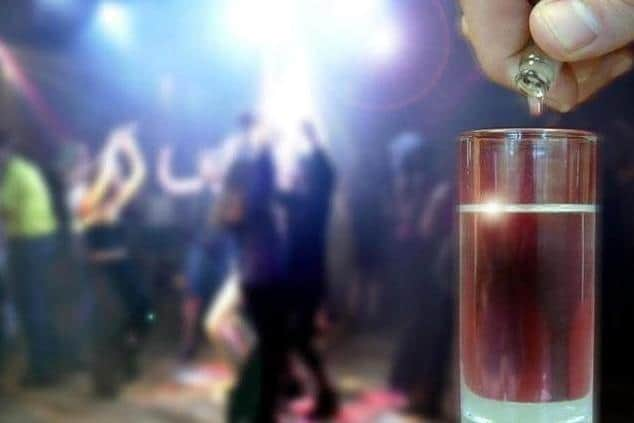Spiking fears prompts festive Ribble Valley night out safety warning
and live on Freeview channel 276
They are reminded not to use unlicensed taxis or flag down private hire vehicles over the festive season and follow these steps to ensure a safe journey:
● "Yellow plate" private hire vehicles must be pre-booked. Only ‘blue plate’ hackney carriages can be flagged down or hired from a taxi rank and it is illegal for private hire vehicles to pick up passengers in the street, unless they are pre- booked
Advertisement
Hide AdAdvertisement
Hide Ad● Check drivers are wearing identification badges that have not expired


● Check the identity of drivers against photographs on identification badges
● Check that cab licence plates at the back of vehicles or on the left-hand side of windscreens are in date
● Do not give personal details to drivers
● Agree private hire fees in advance with operators (hackney cab fees are set by the council)
Advertisement
Hide AdAdvertisement
Hide AdRibble Valley Borough Council’s register of licensed operators, vehicles and drivers featuring the names of taxi licence holders, along with licence numbers, issue and expiry dates, and licence terms, is available at ribblevalley.gov.uk.
Members of the public can use the register to ensure drivers and vehicles are licensed, which means they will be safe, comfortable and roadworthy, and that drivers have a reasonable knowledge of the area, are medically fit and free from serious convictions.
Anyone who suspects a taxi firm of operating without a licence or a driver of driving without a licence, or using an unlicensed vehicle, is asked to contact the council’s licensing team on 01200 414411.
Partygoers are also advised to be on the lookout for "spiking" if visiting busy pubs and nightclubs.
Advertisement
Hide AdAdvertisement
Hide AdOver 500 people across the UK were assaulted with a needle or had their drinks spiked between September and November, figures reveal.
The reports involved men and women, but the majority of the alleged victims were female.
While licensing officers at Ribble Valley Borough Council and many local licensees have received ‘spiking awareness’ training, there are things you can do to protect yourself, such as never leave your drink unattended, don’t accept a drink from someone you don’t know and stick together with friends.
Drink-spiking symptoms include loss of balance, feeling sleepy, visual problems, confusion, nausea, vomiting and unconsciousness.
Advertisement
Hide AdAdvertisement
Hide AdIf you or a friend start to feel strange or more drunk than you should be get help immediately:
● Tell a bar manager, bouncer or member of staff
● Stay with your friend and keep talking to them
● Call an ambulance if their condition deteriorates
● Don’t let them go home on their own
● Don’t let them leave with someone you don’t know or trust
● Don’t let them drink more alcohol – this could lead to serious problems
Advertisement
Hide AdAdvertisement
Hide AdThe British Beer and Pub Association and UK Hospitality have published a joint factsheet on spiking for licensed venues, which contains links to helpful resources. It is available at beerandpub.com.
Finally, England has now moved to Plan B in response to the risks of the Omicron variant. This means:
● Face coverings are now required by law in most indoor settings
● Office workers who can work from home should do so
Advertisement
Hide AdAdvertisement
Hide Ad● Certain venues and events are required to check that visitors aged 18 years or over are fully vaccinated, have proof of a negative test in the last 48 hours, or have an exemption
Every action you can take to reduce the spread of coronavirus will ease pressure on the NHS and help you and your family enjoy a merry Covid-free Christmas. For the latest guidance on coronavirus regulations go to gov.uk.